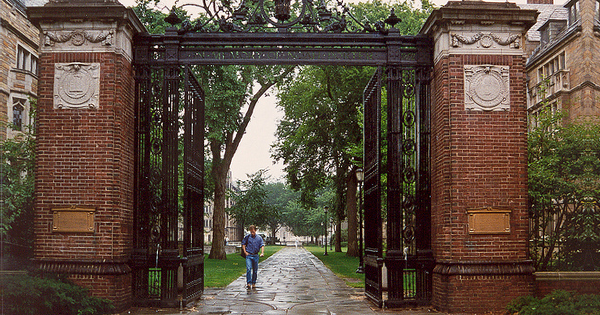
“It’s not about creating an intellectual space! It is not! Do you understand that? It’s about creating a home here.”
These words are those of a black student at Yale, outraged by an email from Erika Christakis, a professor who argued that students ought to be allowed “to be a little bit obnoxious … a little bit inappropriate or provocative or, yes, offensive” in their choice of a Halloween costume. Christakis’s email came on the heels of a university-wide email from the multicultural center urging students to be considerate in their costume choices at Halloween, “a time when the normal thoughtfulness and sensitivity of most Yale students can sometimes be forgotten.” Complicating the matter is that Erika Christakis is the wife of Nicholas Christakis, the master of Silliman College, one of the 12 residential halls that house undergraduates. A College master is a position of eminence at Yale, making Nicholas Christakis more than simply a professor.
I watched the video of the student shouting at Mr. Christakis, and my initial thought was like that of many people of my age and background: irritation at what appeared to be an unrealistic, if not spoiled, response to a relatively inoffensive communication. The student was at an elite university, enjoying a privileged education. What was she so angry about?
Yale, on paper, seems to be one of the most enlightened places on earth. Look through the list of courses offered each year and you’ll see how many deal with world literature and history, ethnic and gender issues, and topics relating to social justice and equity. During a time when people are dying at the hands of genocidal maniacs and religious zealots, the Yale student’s anger didn’t initially make sense to me.
But upon consideration, I realized that she was struggling to express something that took me 30 years as a professor to understand. Creating a “home” and creating an “intellectual space” are not at odds. One is necessary for the existence of the other.
We tend to get bogged down in the semantics of this situation. Of course, being at Yale is not synonymous with being in a war zone. The students at this elite university are privileged. Their diploma will open doors that will be closed to others. It also costs a great deal of money to go to Yale. If a student doesn’t pay the tuition directly as a result of a discount or a scholarship, someone is footing the bill. But that’s the point. Given the cost and prestige attached to such an education, Yale and similar institutions should be places where students can exercise their best selves.
During my early years as a professor, I used to blame my students when a class didn’t go well. I would complain that they weren’t up to the material, that they had weak skills, were lazy, or lacked curiosity.
As time went on, however, I noticed that my students seemed to become smarter and more motivated. Had they changed? Not appreciably—but I had. I had learned how to make my classroom more inviting, to create a so-called “safe space” where they could think more freely and take intellectual risks.
As my students became more relaxed, they became smarter and more interested. They lost their reticence and were willing to say unconventional things. In short, as they felt more at home, they began to think and speak freely in a civil and constructive way.
I happen to have been in one of the first classes of women at Yale. I have always seen this as a great opportunity and have looked back at my college years with enormous gratitude. But I also realize, in retrospect, that I almost never spoke up in class and that I have very few friends from that period. I wasn’t at home at Yale, and, as a result, I didn’t end up getting the education I should have gotten. In that sense, Yale wasn’t a safe space for me.
Fortunately, I came from a family that valued ideas. I went on to a graduate program in which I was more at home, and, eventually, was hired by a university that allowed me to explore a range of subjects without feeling stupid or out of place. I became a better teacher as a result, and have since learned to help students feel the same way. Looking back, I wish I had had that at Yale.
This, then, is what I think the young woman meant when she said: “It’s not about an intellectual space! It is not! … It’s about creating a home here.” She missed the mark with her nots, but she was onto something in putting the two ideas—“intellectual space” and “home” —in the same thought. It isn’t either/or. The latter leads directly into the former. Academics need to think about what kind of teaching and mentoring helps students realize their best selves. How do you make a space that is safe enough to encourage intellectual freedom? That’s a question that I think the Yale protesters are trying to answer.

